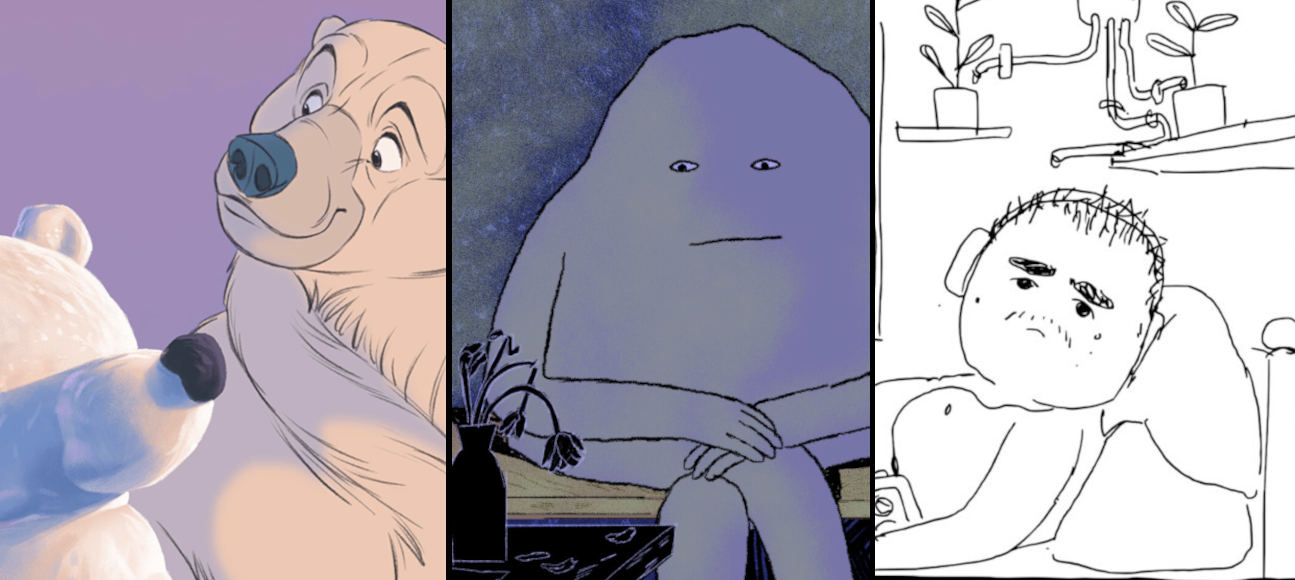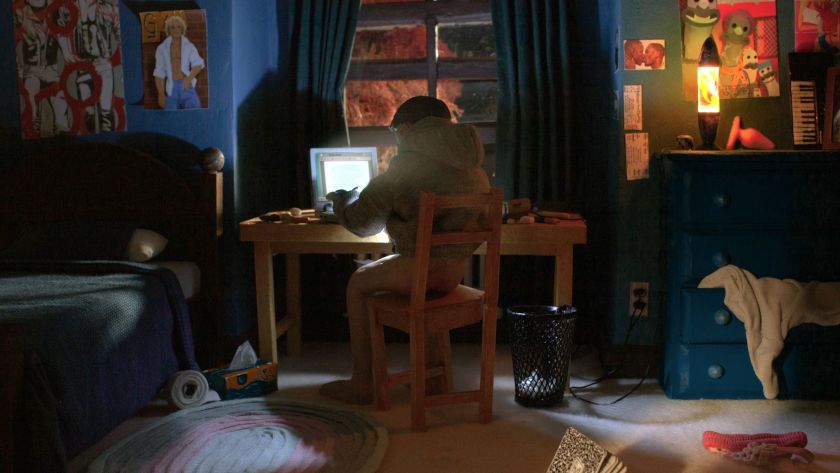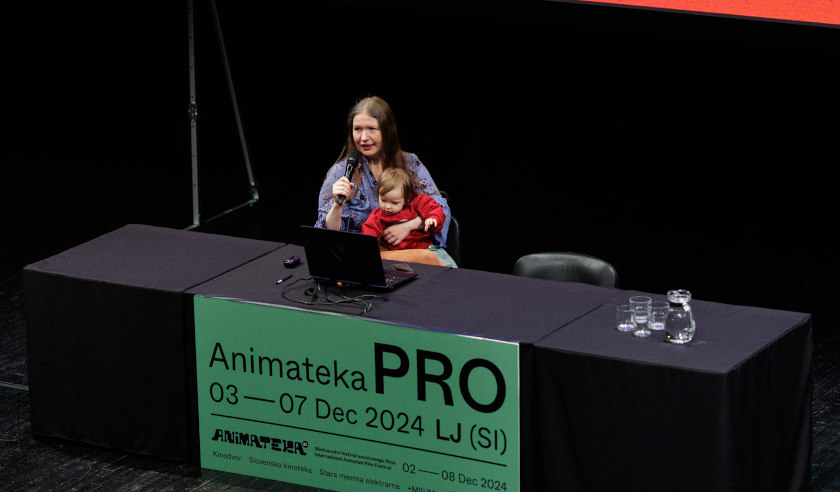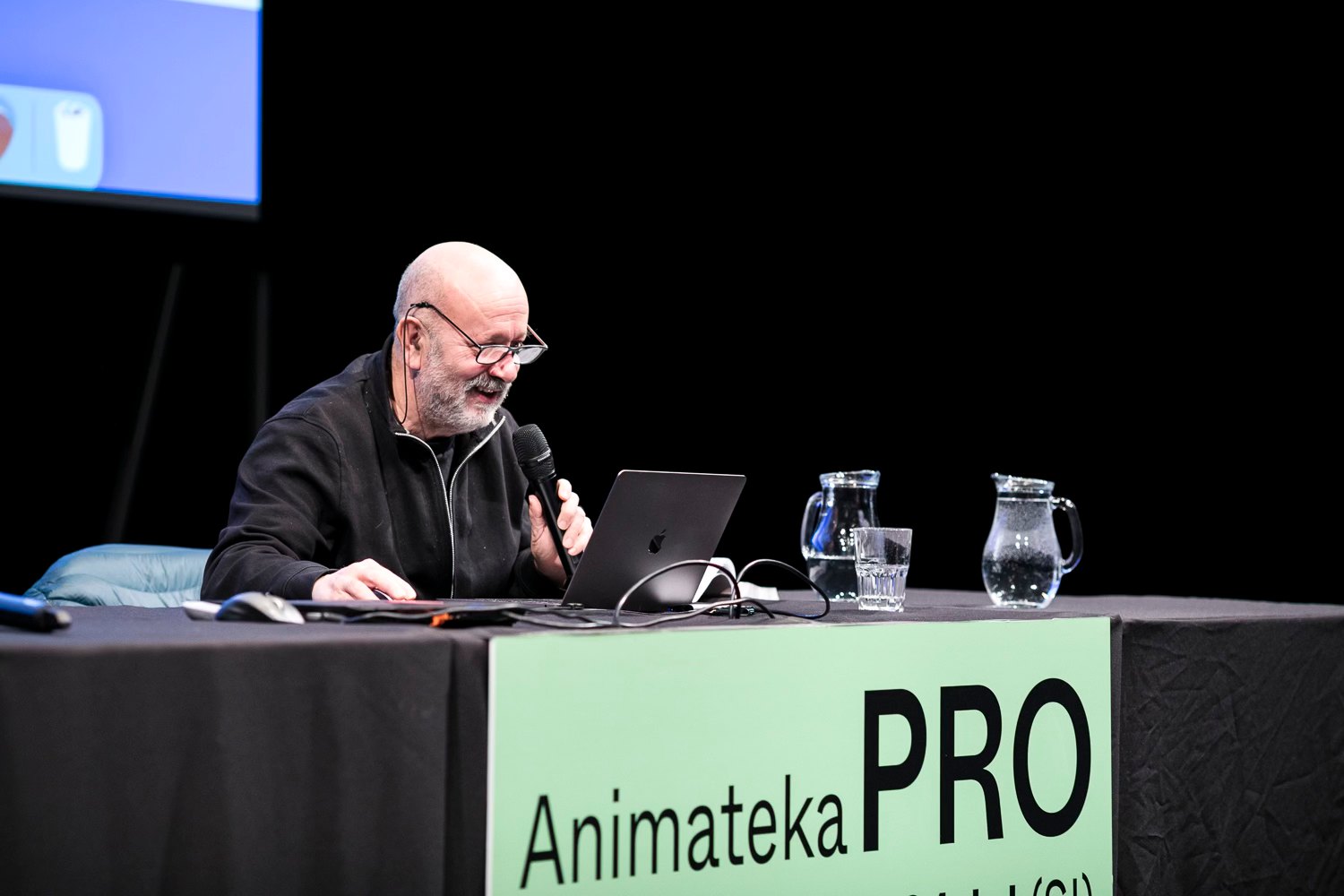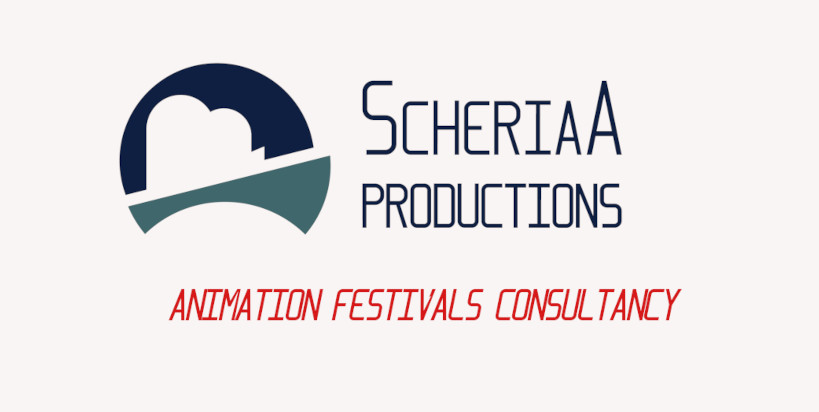Fest Anča 2023: Slovak Competition Programme (GoCritic! Review)
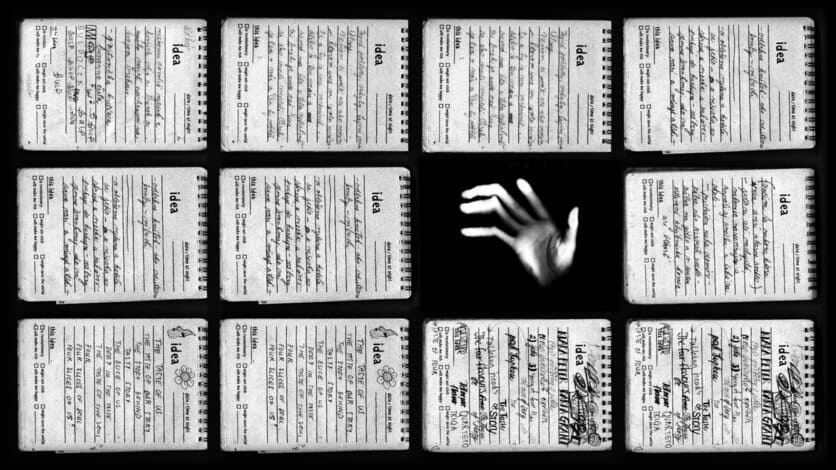
From confronting doubts and finding confidence as an artist to searching for the true meaning of life while brushing your teeth, the Slovak competition programme at this year's Fest Anča International Animation Festival addressed complicated topics through a hugely diverse assortment of animation techniques and storytelling approaches. Despite this not being a thematic section, we can still trace a common thread connecting the films in this competition: one way or another, they all aim to tackle our insecurities with optimism and to bring us closer together in times of existential dread and global uncertainty.
We can imagine how difficult it must have been for the jury to compare the selected shorts, considering how different they are from one another. We jump from pixilation to embroidery, from 2D animation to stop-motion and mixed media without skipping a beat. This proves that Slovak animation doesn’t follow a certain trend but tends to encourage originality and individuality, offering fertile ground for creative freedom and innovation. The vast range of forms of artistic expression exceeds the limitations of cinema as an art form, utilising the full emotional capacity of poetry, music, and philosophy.
The programme featured three music videos, but music also played an important role in some of the narrative works too. Ivana Laučíková’s 'Mercy' (2022), loosely inspired by a true event from 2006, tells the story of a string quartet attacked by a neo-Nazi street gang. The eternal fight between good and evil is illustrated here as “music versus violence”. The chaotic nature of cruelty is wonderfully underlined by Slavo Solovic’s score, which amplifies the dramatic effect of the climax.
Laučíková combines pixilation, 2D digital drawing, and traditional, frame-by-frame animation to create a trippy feel, her characters superimposed over real-life footage of Bratislava. A slight delay can be observed between the speed of their movement and the background, implying that Laučíková used different frame rates to achieve a specific, uncanny result.
Music continues to ring in our ears in 'Criss Cross' (2023) by Nina Rybárová and Tomáš Rybár. This eight-minute film relies on video game references, which dictate the overall visual style and structure. Branislav Laho’s 8-bit soundtrack nostalgically harks back to old-school games consoles and arcades.
The intent behind this creative approach might be hidden in the fable-like narrative involving three animal characters. The protagonist, a baby goat, explores the concepts of empathy and chaos by befriending a bird and a fox, each of them respectively representing these concepts. The goat experiments with destruction and creation, either corrupting the world in which it lives by wreaking havoc or mending what’s broken by doing good deeds. By combining two sources of “wisdom” from our formative years – games and fairy tales - 'Criss Cross' brings life lessons inscribed in the very depths of our minds to the surface.
When Mark Twain said: “Find a job you enjoy doing, and you will never have to work a day in your life”, he was missing something important: the competitiveness of the modern-day working environment requires constant dedication and stone-cold confidence in order to succeed in the artistic world. Fest Anča’s winner of the Best Slovak Film Award, 'Doubt' (2023), relies on voiceover narration to investigate such complex themes. During this six-minute film, we hear the voices of four different artists from various fields who describe their doubts and insecurities about their career choices and their creative processes. Director Adela Križovenská explores the familiar fear of not being good enough at her job, mixing different animation styles and techniques - embroidery, pixilation, cut-out, painting, and 3D – and creating an abstract ambience resonating with the feelings expressed by these narrators (and testifying that she is, in fact, very good at her job). The four stories are separated by title cards and introduce different aspects of the film’s main subject, starting with the terrifying prospect of failure, before moving on to imposter syndrome, unreliable flows of creativity, the difficulty of following through with what we’ve started, and the torturous anxiety of showcasing your work to others. An epilogue offers several solutions to the aforementioned problems and ends on a positive note. After all, we mustn’t allow our work to define us if we want to find true happiness in what we do.
But what, if not work, is the main aspect of identity that makes us complete? Filip Diviak’s 'My Name is Edgar and I Have a Cow' (2023) proposes an interesting answer to this question. His film also uses voiceover, but, unlike Doubt, here the filmmaker’s intent is to bring the protagonist closer to the viewer so that we can experience his emotions and dilemmas. We see the titular Edgar going on a trip to the local slaughterhouse, comically called the “Food Factory” (perhaps a commentary on our childish views on production and consumerism). He witnesses the birth of a calf and decides to save it from the butcher’s knife. This is how he ends up raising a huge cow in his tiny apartment - the animal keeps eating, growing, and breaking his most prized possessions. But Edgar eventually realises that sharing your personal space also means sharing your heart, and he finds the key to a happier existence: caring for someone else.
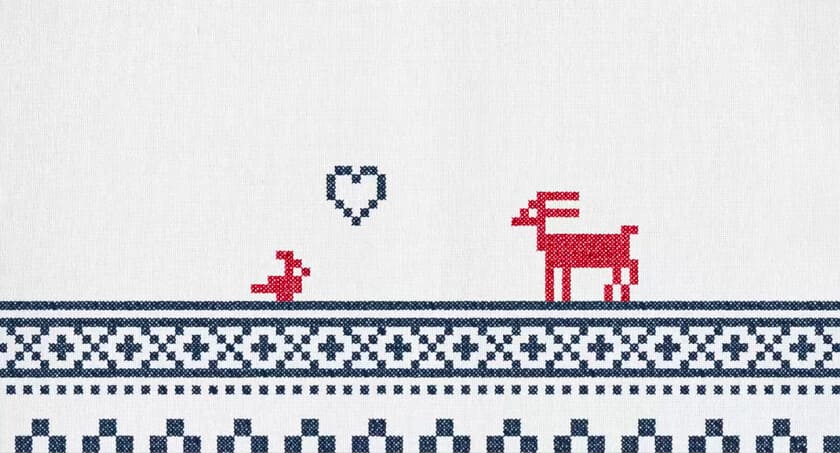 Criss Cross by Nina Rybárová and Tomáš Rybár
Criss Cross by Nina Rybárová and Tomáš Rybár
We step outside of the theatre and let our eyes grow accustomed to the bright light. We breathe in and, still reeling from the influence of the Slovak competition selection, we feel something new: a glimmer of hope, a glimpse of colour, and we can almost make sense of the world. The meaning of life might constantly slip away but, enchanted by the power of animation, we sometimes manage to grasp it, just for a brief moment.
(central image: Doubt by Adela Križovenská)
Contributed by: Anastasiya Stoeva




